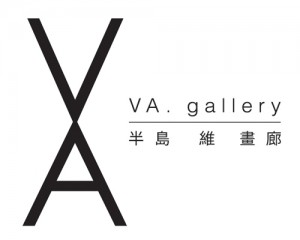WEI Qingji uses ink and silk paper but stands in contrast with traditional dogmas: composing the background of his works, newspaper articles provide an opaque feeling, a component filled of chatter-like sounds and noises. He uses brown tea color with which he draws an entire Chinese iconography entangled with western cultural stereotypes: dragon, little girl, lotus flowers, military person, dog, temple…
WEI Qingji is an artist and an intellectual personality who questions his role and his art amidst Chinese culture and especially in its encounter with the western world. He has exhibited his works in the most famous galleries across the world.
Foreword of the Ambassador – exhibition of Wei Qingji
… where we, in the Western cultural environment, would frame the object of our interest with words, limit it by an exact definition of its meaning, Wei Qingji offers us just freely floating signs and hints ….
I have come to China to explore this country, to get to know it, to penetrate its many layers. To comprehend at least slightly this strange world full of colours, shadows and shades, radiance and reflection, its thousand-year-long history entering through the very finest catheters into the circulation system of today’s bustling, fast-paced society… I have come to search for artists, to peek into their souls… To learn a little bit more about their heart. With each new picture, each new piece of art, I tried to open a new window but, instead, I have opened new wells. I looked for light, but instead I have found depth and fresh energy. I looked for messages, but I have found symbols.
The work of my friend Wei Qingji is permeated by such symbols. They are playful, gentle, ironic and classical. Where we, in the Western cultural environment, would frame the object of our interest with words, limit it by an exact definition of its meaning, Wei Qingji offers us just freely floating signs and hints. They not only reflect the ancient Chinese wisdom and tradition, but also the author’s perception of the present world and its problems. The paintings by Wei Qingji seemingly strive to actively communicate, to talk – about love and betrayal, envy and happiness, strength and cowardice… They attempt to carry us away, together with the figures of children and animals, into a far-away land of fairytale mountains embedded in red-blue light and sprinkled with gold stars… and then, the very next moment, without any warning and with merciless severity, to throw us back into reality.
And so, becoming absorbed in the rice paper, we find galloping ink horsemen and with them, there comes also the whole of humanity’s kill-crazy inventions with all the weapons one could find. The world is like this. And Wei Qingji does not shy away from talking about it out loud.
I wondered for quite some time what would be the best way to open our “EmbassyArt” endeavour – a new cycle of cultural activities at the Czech Embassy in Beijing. Whom I should invite and who I should hand the symbolic key to open a door to new dialogue between contemporary Czech and Chinese artists. I chose Wei Qingji because he is among the seekers of the truth. He is on a quest to find truth inside himself, in his environment as well as in the past. Because any move ahead without a glance into the back-mirror can lead not only to the loss of energy, but also a loss of one’s place and roots. But Wei Qingji feels his roots clearly. There is a strong tree growing out of them, a tree which is spreading, green, ragged and tested by elements. Wei Qingji cannot change the world. The world, however, blossoms out of his tree, in all possible robustness, sharpness and poetry.

